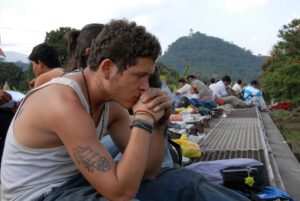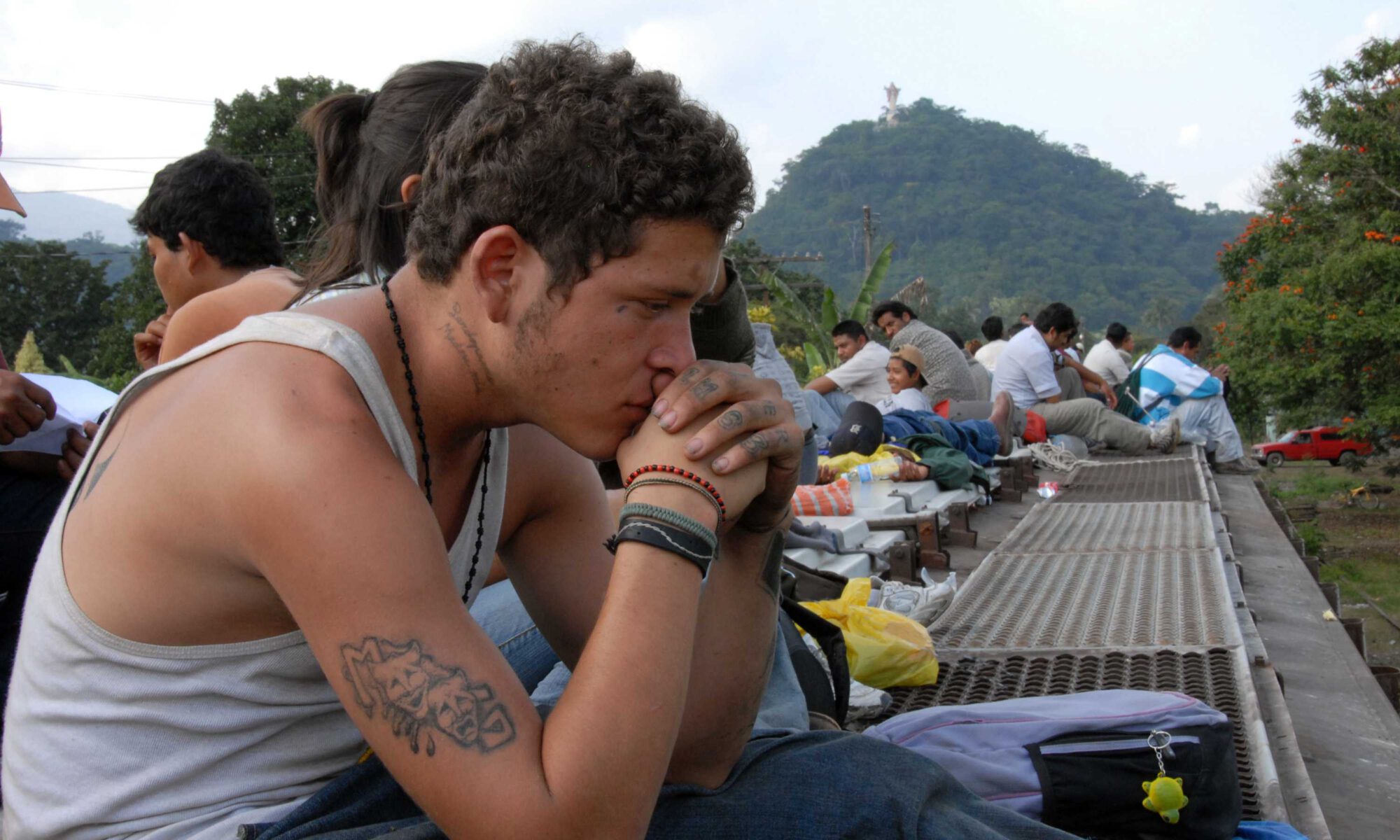Movie Info
Movie Info
- Director
- Cary Joji Fukunaga
- Run Time
- 1 hour and 36 minutes
- Rating
- R
VP Content Ratings
- Violence
- 5/10
- Language
- 2/10
- Sex & Nudity
- 2/10
- Star Rating
Relevant Quotes
When you reap your harvest in your field and forget a sheaf in the field, you shall not go back to get it; it shall be left for the alien, the orphan, and the widow, so that the Lord your God may bless you in all your undertakings. When you beat your olive trees, do not strip what is left; it shall be for the alien, the orphan, and the widow.
When you gather the grapes of your vineyard, do not glean what is left; it shall be for the alien, the orphan, and the widow. Remember that you were a slave in the land of Egypt; therefore I am commanding you to do this.
…for I was hungry and you gave me food, I was thirsty and you gave me something to drink, I was a stranger and you welcomed me…
Somehow the unfinished review of this excellent film was lost following my first viewing of the film almost 5 years ago. I am posting the completed review now because the film and the issues it raises so prophetically are perhaps even more relevant today when immigration, legal and illegal, have become part of the rhetoric of the US political campaign. Too often the loudest voices come from the most ignorant and prejudiced. Mr. Fukunaga’s film can inject truth and compassion into the on-going debate.

It is difficult to believe that this is director Cary Joji Fukunaga’s first feature film, so compact and powerful is its script with its deft portrayals of Hondurans seeking refuge from the deadly gang violence in their country. It is a film that I wish every American would see, especially those objecting to Central Americans trying to find safety and more opportunities here. According to reports, the director/writer was inspired to make the film by a 2003 news story about 80 illegal immigrants found locked in a truck and abandoned in Texas. 19 of them had died. Also, he saw near the border the words “Sin Nombre” crudely written on pieces of cardboard, serving as markers for those who perished trying to cross into what they hoped would be a land of freedom.
The Spanish phrase means “the nameless,” and so Fukunaga takes on the task of giving names to them in his story, the two principal ones being Sayra (Paulina Gaitán) and El Casper (Edgar Flores). The latter is a hapless Mexican teenager who belongs to a gang headed by the vicious Lil’ Mago (Tenoch Huerta Mejía). They put El Casper’s 12-year-old friend “El Smiley” (Kristyan Ferrer) through a violent initiation, and a little later Mago kills El Casper’s girlfriend while trying to rape her. Demanding absolute obedience from his members, Mago matter-of-factly tells Casper that he will find another girl friend.
Meanwhile teenaged Sayra is traveling atop a freight train through Guatemala and Mexico along with her father, and her uncle, their destination New Jersey where they have relatives. The gang boards the slow-moving train during a heavy rain. The travelers, huddling for protection under plastic tarps, are easy prey for the robbers. When Lil’ Mago spots the pretty Sayra, he attempts to rape her, but El Casper, possibly remembering his girlfriend intervenes, killing the leader in the process. He urges Smiley to jump off the train, but stays himself, knowing that he can never return home again. He also is well aware that the gang has ways of communicating with other gangs up the tracks, so that there will be retribution to pay. He is right, in that Smiley when he returns home, to prove he was not involved in killing Mago, takes an oath that he will follow and kill his former friend.
During the trip Sayra becomes close to her rescuer, and he in turn, helps her and the others on top of the train avoid officials along the way. The refugees jump off on the far side of the train as it approaches certain villages, run alongside it, and then climb back on board after it has passed the checkpoint. For a period, the two, separated from her father and uncle, become lovers, but hovering over them is the specter of Smiley and other gang members on the lookout for El Casper.
The film gives us a clear picture of people in such desperate need that they leave their homes and make the dangerous journey to a distant land they know only by reports about the safety and abundant living it promises. They are victimized by predators, but in one beautiful scene, they also are recipients of grace from generous villagers who rush to greet the train slowly passing through their village—not just with encouraging greetings and goodwill gestures, but also with food. Everyone brings pieces of fruit, tossing it up to the hungry passers-by. This scene of good will and generosity is quickly over, but it stands out as the happiest moment of an otherwise grim story. Sin Nombre is worthy of placing alongside Gregory Nava’s now classic 1983 film El Norte. Such films not only help us understand the plight of those desperate for a better life, but also challenge us to do whatever we can to ease their plight, the least of which is to combat the prejudice and ill will that would turn them away from our shores.
This review with a set of discussion questions will be in the Feb. 2015 issue of VP.

